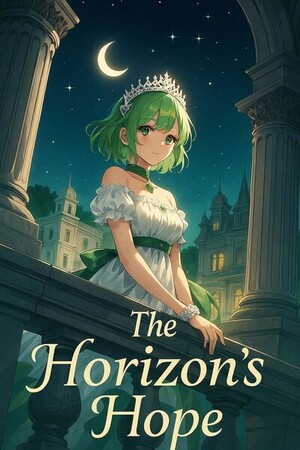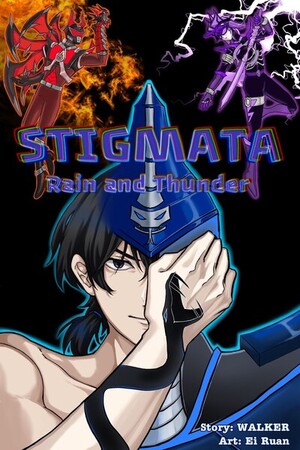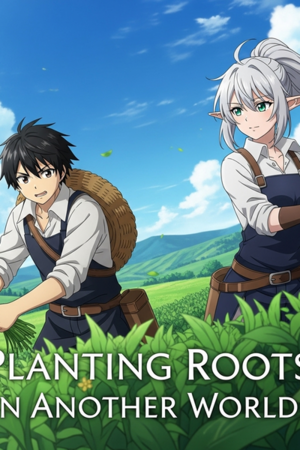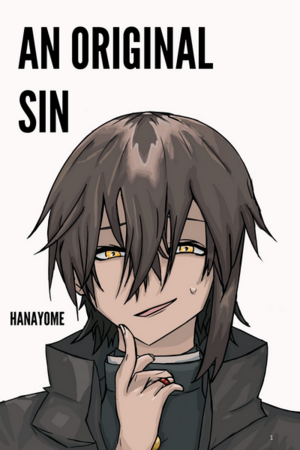Chapter 1:
Chapter 01: Goodbye, I’m sorry,
The Horizon's Hope
I never would have imagined the reason why my parents neglected me right after I was born. My father, one of the most highly respected entrepreneurs and consistently ranked among the most successful in the world, had always dreamed of having a son—a successor to his company. That was why he married my mother, one of his most loyal employees.
Their love was never equal. My mother adored him unconditionally, clinging to every glance and rare smile he offered. She wasn’t after his wealth; she simply believed being by his side—no matter how cold—was enough.
When she discovered she was pregnant, her joy spilled over like sunlight breaking through clouds. For a short while, his voice softened, his hand lingered on hers at dinner, and for the first time, they looked almost like a real family.
But the day they learned the child’s gender, the illusion shattered. Glass broke somewhere behind a closed door. My mother’s muffled sobs carried through the hallway. And his voice—sharp, bitter, final—cut through it all:
"A girl? That’s not what I wanted."
That child was me.
Furious and consumed by disappointment, he became even crueler than before. His gaze, once briefly softened by the idea of fatherhood, turned cold and sharp, as if I had robbed him of something precious before I was even born. He wanted nothing to do with me. In his anger, he demanded my mother cast me away—erase me from his life entirely or else he will file a divorce with her.
My mother, desperate to stay by his side, fell to her knees and begged for forgiveness. Tears streaked her face as she clung to his sleeve, pleading for a chance to fix what he saw as an unforgivable mistake. In her panic, she devised a plan. She carried me—her newborn daughter—into the arms of her younger sister, begging her to adopt me. She couldn’t bring herself to abandon me completely, yet she couldn’t keep me either. Love for him chained her to his cruelty.
My aunt accepted me with a heavy heart. She saw the pain in my mother’s eyes but also recognized the danger—if she refused, my mother might have done something far worse to please her husband. From that day on, my aunt became my guardian, and I grew up without knowing the people who had brought me into this world.
When I turned fourteen, a gnawing ache of curiosity and longing pushed me to ask about them. Again and again, I begged my aunt to let me meet them, but each time she refused, her voice gentle but firm, as if she were guarding me from something I wasn’t ready to face. Still, I believed I could win their approval someday. If I worked hard enough—proved I was worthy—they would want me back.
Fueled by that fragile hope, I gave everything I had. I studied until my eyes burned, practiced sports until my muscles ached, and learned instruments—the piano, the violin, the trumpet—each note driven by the dream of being heard by them one day. I earned perfect grades, mastered every skill I touched, and pushed past my limits—not because I was gifted, but because I refused to believe I wasn’t enough.
But despite all my efforts, it was futile. No letter came, no voice called my name. Silence became my only answer.
One night, my aunt stumbled through the front door, her steps uneven, her cheeks flushed from drink. The welcoming celebration at her company had gone on far longer—and far heavier—than usual. She collapsed into a chair, muttering incoherently until her words slipped beyond her control. That was when the truth spilled out—not in measured sentences, but in broken pieces between hiccups and trembling breaths.
She told me why she had never let me meet my parents. Why I had been abandoned. Why I had been living with her all this time.
Tears streamed down her face as if each word carved them out. Her frustration, her guilt, her pain—they clung to her voice, raw and unpolished. And as I listened, the questions that had haunted me for years finally found their answers.
Surprisingly, no anger rose within me. Only a hollow smile curved my lips—a smile born from exhaustion rather than relief. The truth hurt, yet it carried a strange mercy: the torment of wondering was over. Hatred required energy, and I had none left to give.
From that night on, I made a quiet decision: to erase them from my memory. It wasn’t difficult. Memories of them never truly existed—only dreams I had stitched together from longing.
But my aunt noticed the shift. The girl who had once pleaded and begged about meeting her parents now spoke of them no more. Days later, she gathered her courage, sat beside me, and asked what had changed.
I met her gaze, hiding the storm in my chest behind a calm smile.
“I don’t know them. The only person I consider my family is you, Ai.”
Her lips trembled, eyes brimming with emotion, before she pulled me into her arms and whispered, “Me too, Diana. You’re the most important person in my life. You’re my one and only family.”
By the way, my name is Aozawa Diana. My aunt gave me both my name and her last name. I’m fifteen years old—a freshman at one of the most prestigious schools in the country, where every student carries a GPA of ninety-five or higher. I didn’t get in because I was gifted; I got in because I refused to stop trying. Once, I worked this hard to earn the approval of parents who never wanted me.
But now? I no longer care about recognition or accolades. My only goal is to repay the woman who gave me a home when no one else would. She gave me warmth, safety, and a reason to keep going. She is the most precious person in my life, the center of my small but steady world. My dream is simple: to give her the life she deserves, free from burden, free from fear.
Life eventually fell into a quiet, monotonous rhythm. The ache to meet my parents faded like a distant echo, no longer sharp enough to hurt. But that fragile sense of normalcy didn’t last.
It started with a missed dinner. My aunt didn’t come home from work. At first, I brushed it off—told myself she must be busy with a last-minute project or staying over with a colleague. But when the clock pushed past midnight, then bled into morning, a cold unease began to creep up my spine.
Hours turned into days. My chest tightened more with every sunrise that came without her. My lips trembled when I tried to reassure myself. My heart pounded so violently it felt like it might shatter.
Then came the weeks—two of them—each one stretching longer than the last. I reported her disappearance to the police, clinging to hope like a lifeline, but the silence from their end was deafening. Anxiety coiled inside me, sharp and unrelenting, twisting tighter each sleepless night. Fear and frustration built together, rising like a tide I couldn’t hold back.
Two weeks later, my phone buzzed.
The caller ID read: Police.
My hand trembled as I answered the call, the phone slick in my sweaty grip. My throat felt like sandpaper, every breath jagged and shallow.
“Miss Aozawa,” the officer said, voice calm yet unbearably heavy, “we’ve found your aunt.”
The words hollowed me out. The phone slipped from my hand, clattering against the floor. My knees buckled, and I sank, sobs ripping through me before I could even form a thought. His voice kept talking, spilling fragmented horrors—an abandoned bridge… brutally killed… raped—but my mind refused to process. The world blurred, dissolving into a haze of ringing silence and salt-stung tears.
That night, grief swallowed me whole. I cried until my throat burned, until my voice cracked into silence, until the darkness of my room felt like it might consume me.
The funeral came too soon. The room was filled with strangers—coworkers, high school friends, and her estranged parents, who had long ago turned their backs on her. Their presence twisted my stomach into knots. Now they showed up? Now they acted like they cared?
I clenched my fists so tightly my nails broke skin, but I forced myself to stay composed. A funeral was no place for rage. I stared up at the ceiling, drawing a shaky breath, willing my emotions to stay buried.
Then the door creaked.
A woman stepped in, holding a child close to her chest. Her features—soft jawline, gentle eyes—were eerily similar to my aunt’s. Beside her was a man, tall, confident, his smile smug enough to sour the air. They walked as though entering a gala, waving and offering hollow smiles to the mourners.
I kept my eyes fixed on the casket, refusing to give them the satisfaction of acknowledgment.
The woman approached, hesitating as she stood before me. Her voice was soft, trembling with emotion. “You must be Diana. I’m Ai’s older sister. Did she… ever tell you who your real parents were?”
The words struck like a slap. My breath hitched. Slowly, I turned to face her, my gaze sharp, my expression unreadable.
Tears welled in her eyes, her voice breaking. “I’m your mother, Diana. When I heard about Ai… I couldn’t stop thinking about you. That’s why we came.”
Her words reached me, but they didn’t sink in. They just scraped against old scars.
I stared at her, my voice cold and flat. “Then?”
She flinched, but pressed on, desperate. “I know you have nowhere to go after this. I’ve already prepared an apartment for you. You’ll be safe there.”
Her tone was kind. Too kind. It made something bitter rise in my throat.
“Thank you for your hospitality,” I said, voice trembling but firm, “but you’re a stranger to me. I have no reason to accept your help, Miss.”
Her lips quivered as a single tear slid down her cheek. She took a step back, wounded.
Then the man beside her cleared his throat, drawing my gaze. His presence reeked of arrogance, his eyes sweeping over me like I was a product to be inspected.
“So,” he said, his tone slow, deliberate, dripping with disdain, “you’re the child my wife gave away. I’ve looked into your records—impressive. Perfect scores all around. Starting today, I’ll acknowledge you as my daughter.”
Then his lips twisted into a sneer.
“But since you’re a girl, you won’t inherit my company. Instead, I’ll arrange a marriage for you—with one of my business partners.”
His words dripped venom, each syllable heavy with entitlement. My jaw tightened, anger rising like a tide I couldn’t hold back.
“You’re no father of mine,” I said, voice sharp enough to cut glass. “And money doesn’t buy you the right to claim me.”
I met his gaze head-on, glare unflinching. “If you have no other reason to stay, leave.”
For a brief moment, his smug smile faltered, but he recovered quickly, turning to the casket.
“No wonder you turned out like this,” he sneered. “Living with her all your life… good-for-nothing, just like her.”
The insult struck like a slap, but instead of wounding me, it stoked the fire already burning in my chest. I drew in a slow breath, forcing my voice steady, letting a cold smirk curl across my lips.
“You speak as if you’ve earned the title of a father. But you abandoned me before I was even born. If anyone here is good-for-nothing, it’s you.”
His face contorted with fury. Before I could react, his hand cracked across my cheek, the sharp sting blooming instantly, the echo ringing through the hushed room.
I didn’t flinch. I smiled. Not out of joy, but because my words had cut deeper than his slap.
Slowly, I turned to the woman who had dared call herself my mother. My voice came out like a blade—cold, final.
“Don’t show your face to me again. Your existence disgusts me.”
Gasps rippled through the mourners. The man and woman stood frozen, shame flickering in their eyes before they turned and left in silence. My grandparents trailed behind them, pale and wordless.
The room fell heavy with whispers, but I didn’t hear them. My gaze stayed fixed on the casket, my aunt’s still face framed in flowers.
After the funeral, life moved on. But I didn’t.
School began, and I buried myself in studies, taking refuge in the dorms through a scholarship. Yet grief stalked me like a shadow. Nights brought no rest, only tears. The emptiness she left behind was a wound that refused to close.
One night, it became unbearable.
I stood on the rooftop of the dorm, the cold wind clawing at my skin. Below, the world stretched in a blur of city lights—distant, untouchable. My toes curled over the edge of the fence, the void whispering my name.
“I’m sorry, Ai-chan,” I whispered, my voice trembling. “This world is too cruel for me to bear alone. Forgive me.”




Please sign in to leave a comment.